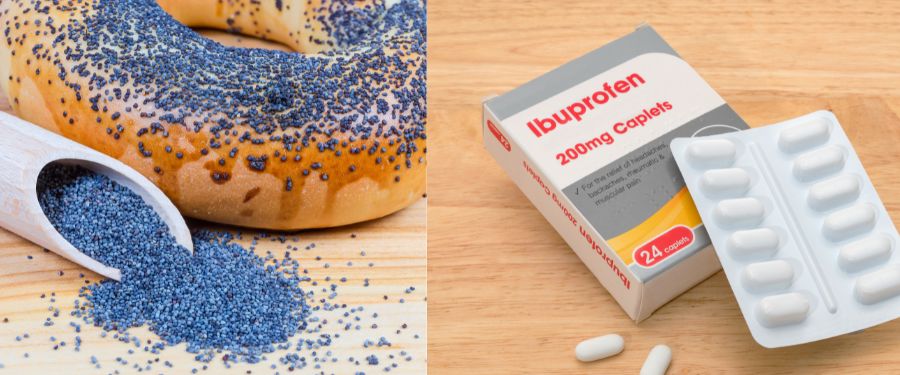Drug testing plays a crucial role in maintaining safety in workplaces, rehab programs, legal settings, and sports. But while most rapid drug testing kits are highly reliable for preliminary screening, they’re not perfect. One issue that arises from time to time is the false positive—where a person tests positive for a drug they haven’t actually taken.
These false positives can be triggered by certain over-the-counter (OTC) or prescription medications, natural substances, or even foods.
For instance, cough suppressants like dextromethorphan, antihistamines, some diet pills, and even poppy seeds from your morning bun can interfere with screening results.
1. Amphetamine false positives
Common offenders:
- Pseudoephedrine (sometimes used in nasal decongestants)
- Phenylephrine (another decongestant)
- Bupropion (Antidepressant and smoking cessation aid)
- Trazodone (used for depression and sleep)
- Labetalol (blood pressure medication)
These share structural similarities with amphetamines, leading to false positive results in about 4 to 10% of urine screens.
2. Marijuana (THC) false positives
Risk factors:
- High doses of (nonsteroidal anti-inflammatory drugs) NSAIDs like ibuprofen or naproxen
- Pantoprazole (proton pump inhibitor)
- Occasional cannabidiol (CBD) or hemp-containing products
These may trigger false positives, albeit in small percentages for NSAIDs—though confirmation tests usually rule them out.
3. Barbiturate false positives
Possible triggers:
- Ibuprofen and naproxen
- Sedatives like doxylamine (Unisom)
These can interfere via certain immunoassay types.
4. Opiate/PCP false positives
Watch out for:
- Dextromethorphan (cough syrups)
- Diphenhydramine (Benadryl)
- Poppy seeds (food items)
They can mimic opiate-like substances during screening. Avoid consuming any poppy seed baked goods as they have a higher tendency to falsely trigger testing kits.
READ MORE: Poppy seed bagel causes failed drug test
What to do about false positives
- Inform test administrators of any medications or supplements being used.
- Always confirm positives via lab-based GC-MS or LC-MS. Screening tests alone are not definitive.
- Maintain clear records—medications can explain unexpected results.
- Choose high-quality testing tools and procedures—like our DrugSense kits, paired with reliable confirmation—to minimize confusion.
Final thoughts
False positives don’t mean someone is guilty of drug use—but they do highlight why confirmation testing is essential. Understanding what can cause these errors helps create a fairer, more accurate testing process for everyone.
Contact Andatech for free consultation on best practices for implementing a drug and alcohol testing policy in your workplace today.





